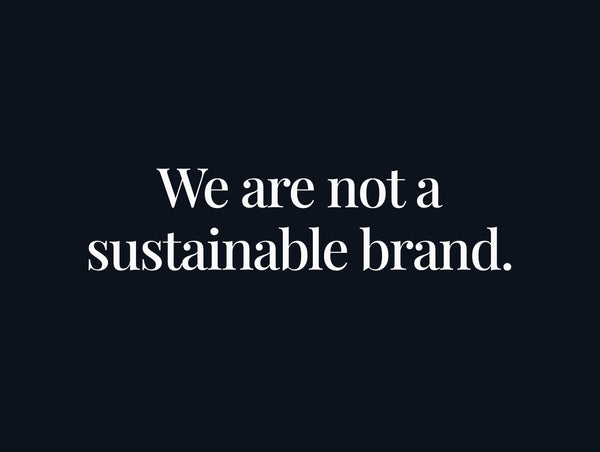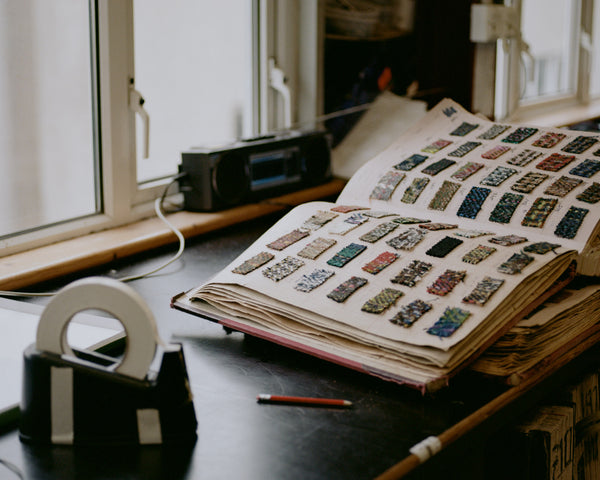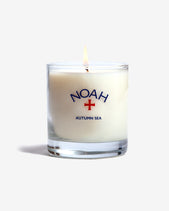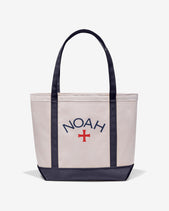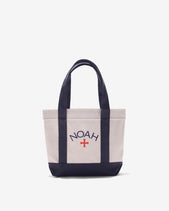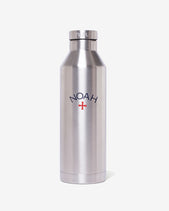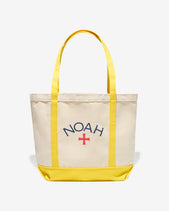
Introducing the Noah Field Team, a selection of individuals in different industries around the world who are contributing to their community in a substantial way. Parker is a marine biologist, skater, and surfer in California. He currently spends his time working for a legit nuclear power plant—where he surveys the ocean for changes in the local environment.
"Nuclear energy" may sound bad for the environment, but it's actually America's largest source of clean energy. We caught up with Parker on his way to a survey in Monterey Bay, California to talk about the misconceptions people have about nuclear energy, growing up scuba diving, and swimming with sharks.

Noah
Parker
Where are you currently?
Right now I'm in Salinas. I'm headed up to Monterey Bay and today we're deploying some salinity meters. We're gonna put the instruments in the ocean and they basically monitor how saline the water is, which helps us gauge what fish can live in those environments. So it's a cool time actually, I'm kind of excited for the surveys.
Has there been like a salinity problem in the water lately? Did that California drought affect the levels at all?
Part of the reason we're doing this survey is to check out sea life, because we’re thinking on that note. They're looking at installing a desalination plant, and so they want to see once they house a hypersaline solution to the salt they basically filtered out, how that will affect the wildlife if they pump it back into the ocean. But nothing is determined yet, we’re doing preliminary surveys. It’s cool because I feel like I'm paying homage to the pioneers of marine biology when I go up there.


How did you get into marine biology?
Ever since I was a kid I've always had my face in a snorkel and my head underwater. And then I kind of just grew from there, until I got to a point where I was basically scuba diving professionally and working in the industry. The outfit that I work for right now, we do a lot of surveys for coastal power plants. The big one I work at is a nuclear power plant, which is kind of a trip because I feel like marine biology Homer Simpson—rolling to work at the nuclear power plant, throwing on scuba gear, and checking out the effects of that on the environment. I can’t say too much, because we have data integrity to these power plants, but what I can say is that being in the ocean every day just gives us a better familiarity with what's going on and the changes that are happening.
What I've personally noticed is that more of the species, their ranges are changing. The species that were traditionally in warmer water are moving north because there's warmer water further north. There are weird kind of inaccuracies and timing of events, like species will spawn at different times. What it all means right now I think is a little tough to say, but having that data and doing that science ahead of time and trying to capture a snapshot of what the ocean is like right now before it changes too much will help.
Obviously there was Japan’s Fukushima disaster a couple of years ago, and the word “nuclear” is already a loaded term, but it’s actually the biggest source of clean energy in America. What are the common misconceptions people have about nuclear power?
Based on my observation at the nuclear power plant that I work at, the effects are super localized. So the warm water discharge is not intruding on the habitat, but what I think the problem is with nuclear energy is the potential risk. So if there were an incident like Fukushima…you know there's earthquakes on the west coast. The place where these plants are is really pristine. It’s a very unique habitat and ecosystem, and if anything were to happen, you're putting that natural resource gem at risk. So, I think it's a clean source of energy, but I think the risk associated with it is something that needs to be taken into consideration.
It's not even about radiation as it is about having a persistent, controllable heat source right?
Yeah, absolutely. And in that sense, the ocean serves as a great specific heat source of water. It's a great holder of heat and dissipator of heat. So it works well to facilitate that nuclear fission. For me personally, I think central California is such a robust and unique kelp forest ecosystem, and to putting that at risk is the danger there. But it's a pretty clean source of energy; I scuba dive in nuclear ocean swells and I haven't turned green yet or anything.

You grew up scuba diving and snorkeling. Did you surf too?
I grew up as a traditional California skate kid—surfing, skateboarding—just trying to keep up with hoodlums. I've had a really good go of it. I really like California and the west coast in general, and surfing has always been a part of my life, as a way to further connect with and hang out in the water.
Surfing is an activity that leaves you at mercy of nature in a way. I assume scuba diving brings that connection to the ocean even deeper?
Absolutely. This might be a little off-topic, but I actually have a pretty funny story. So, yesterday we were doing some scuba operations, and we were heading to our next dive site and we actually saw a great white shark. They’re a very real job hazard, and we frequently talk about in safety briefings and when we're getting ready to do our work—one of the items on the checklist is deterring predators. I'm not really worried about it; I respect sharks. I think they’re nothing to be afraid of, but it's kind of unique job hazard which always cracks me up.

Noah’s hangtags have brought attention to the number of sharks (100 million) unjustly killed by humans annually. Seems like you’re not scared of sharks, so why are other people?
I don't do a whole lot of shark research, but I know that they are a definitely a creature to respect and regard. I don't really think I’m saying anything new here, but there are tons of misconceptions about them, and I think inevitably as humans interact more and alter the ocean more, we're gonna have more encounters with them. But I don't think that's something that should control people's willingness to get in the ocean and discover it. It's just kind of irrational fear in my opinion—and I scuba dive with them.
How did you get into Noah?
Why I like Noah so much as brand is because of my surfing and skating roots. I've always been kind of connected to that clothing scene. I've always tried to wake up early for drops. I gravitated towards Noah because I noticed that they're on this next wave of sustainability , and now as a marine scientist, I think marine science is a super badass profession. It’s cool but I don’t really think it is in that global cultural scene it’s regarded as a “cool job.”
I really feel like Noah is pushing that envelope and shining some light on why it’s cool, that kind of makes it cool. I don't really know of anyone else who is putting marine science or advocacy in motion like they are. I don’t know of any other brand in the scene stressing the importance of those things, so that's why Noah hits the nail on the head, and I tip my hat to them because they’re doing a great job.
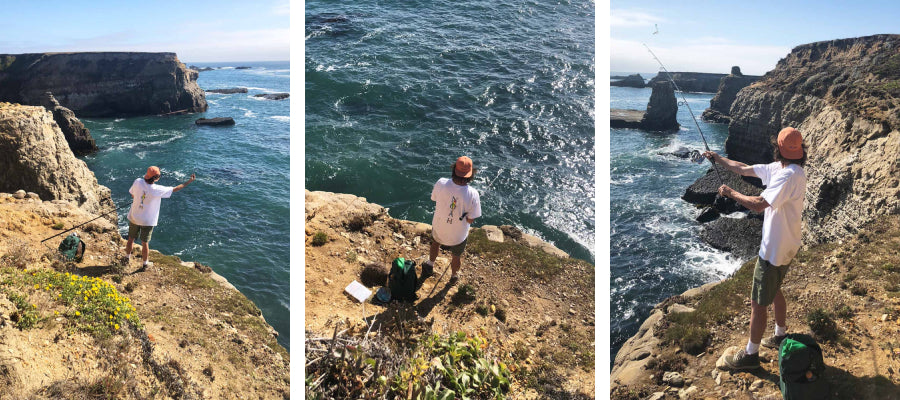
What's your relationship with the products that you buy?
I really don't know where this came from, but I’d definitely be lying if I didn’t say there’s part of me that wants to have a fresh set of clothes and stand out. I always thought it'd be cool to push that variable a little further and be the guy who's wearing cool threads while fishing, backpacking, and out there in nature. Not being in a city helps them stand out even more. Now that I’ve gotten a little older, I care a little bit more about supply chain and the sourcing of everything.
Noah really stands out as a brand that holds true to someone being on record and saying: “Hey, we are not sustainable, but we are trying to make it better,” and I just think that speaks volumes to trying to transform this consumer culture of trying to get out of the hype and aligning that with values and practices that are trying to make the global picture one that's better for the future as opposed to just for right now.

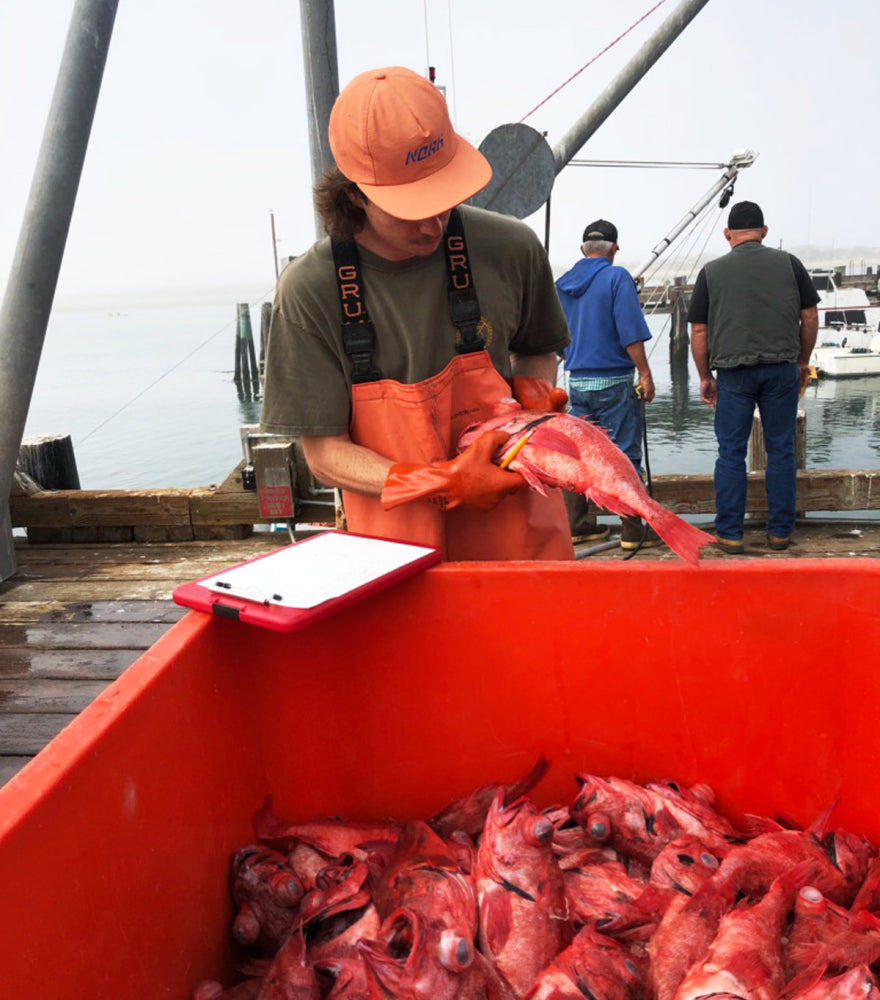
Any other last thoughts or parting knowledge?
I just think it's so cool that Noah has extended itself to—for lack of a better term—a marine science dork.





